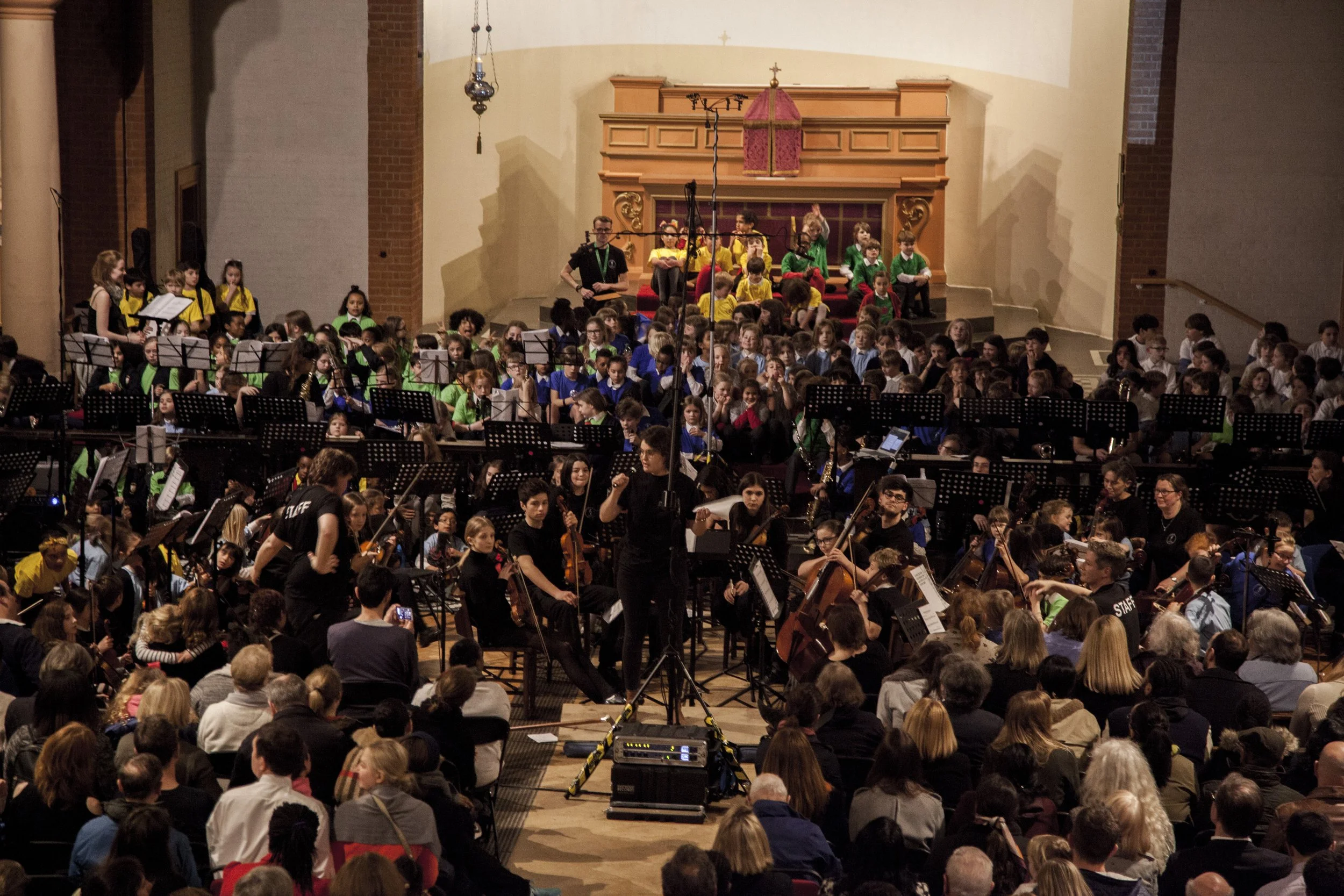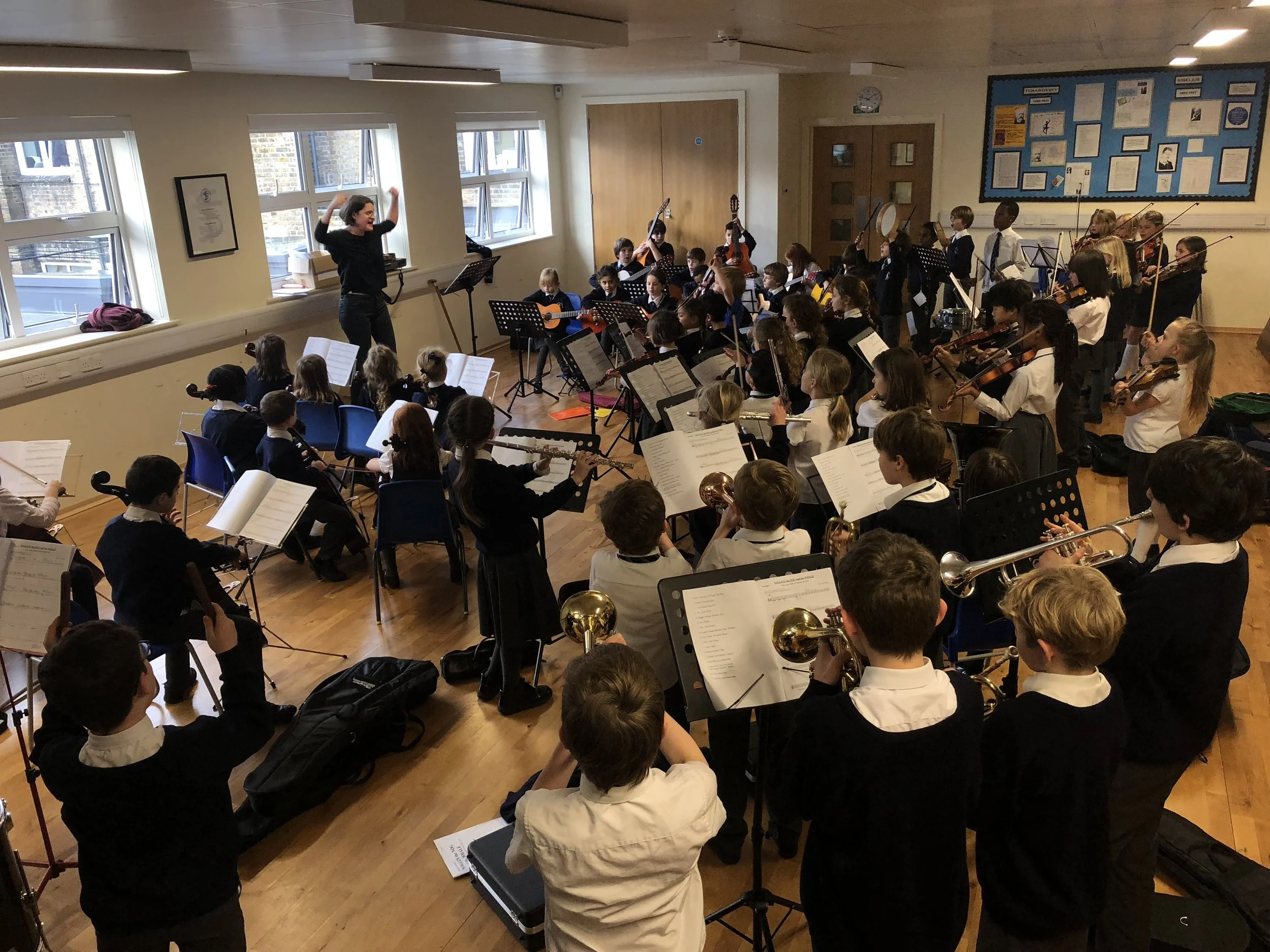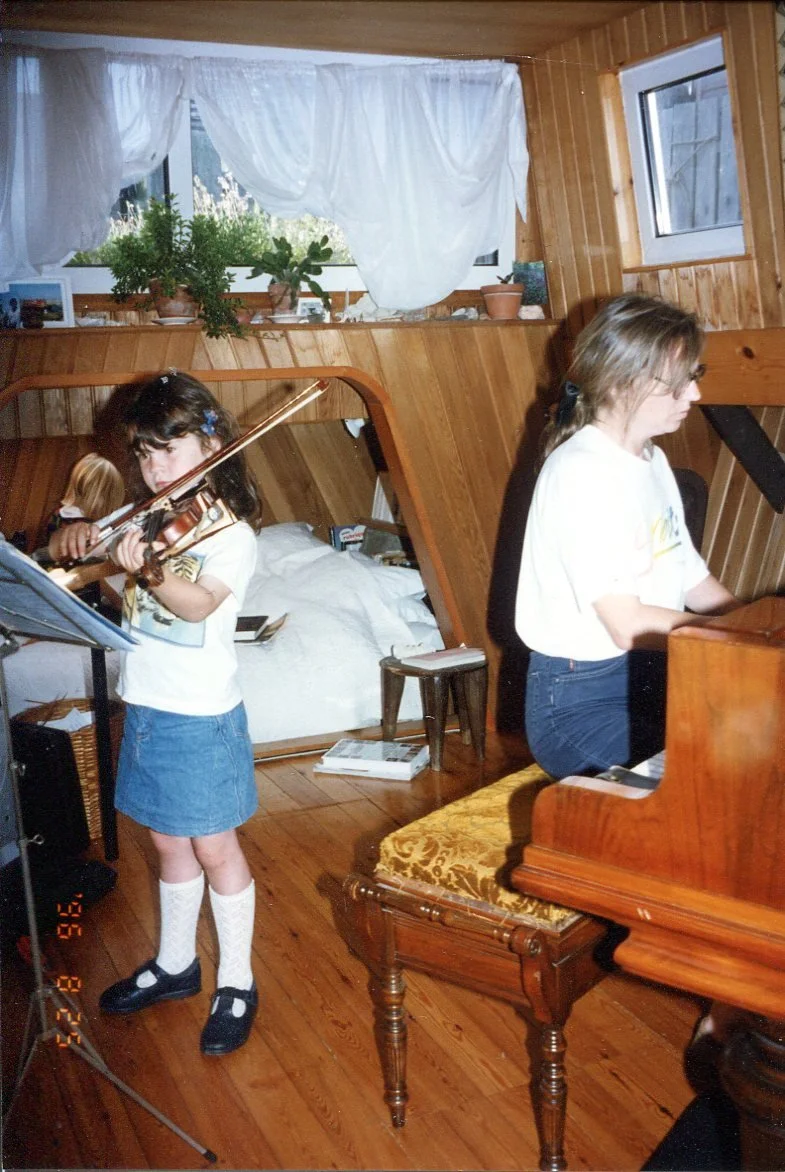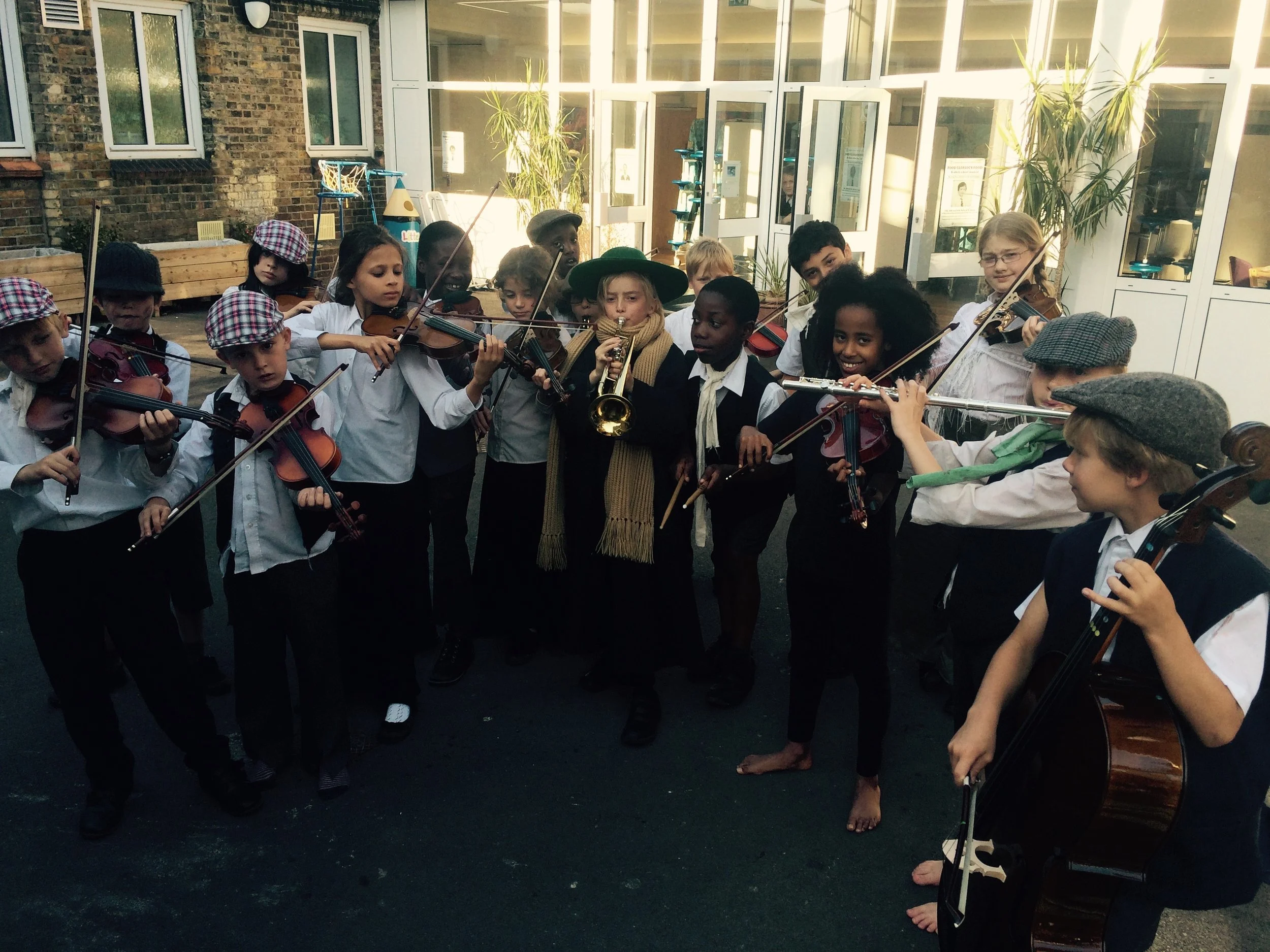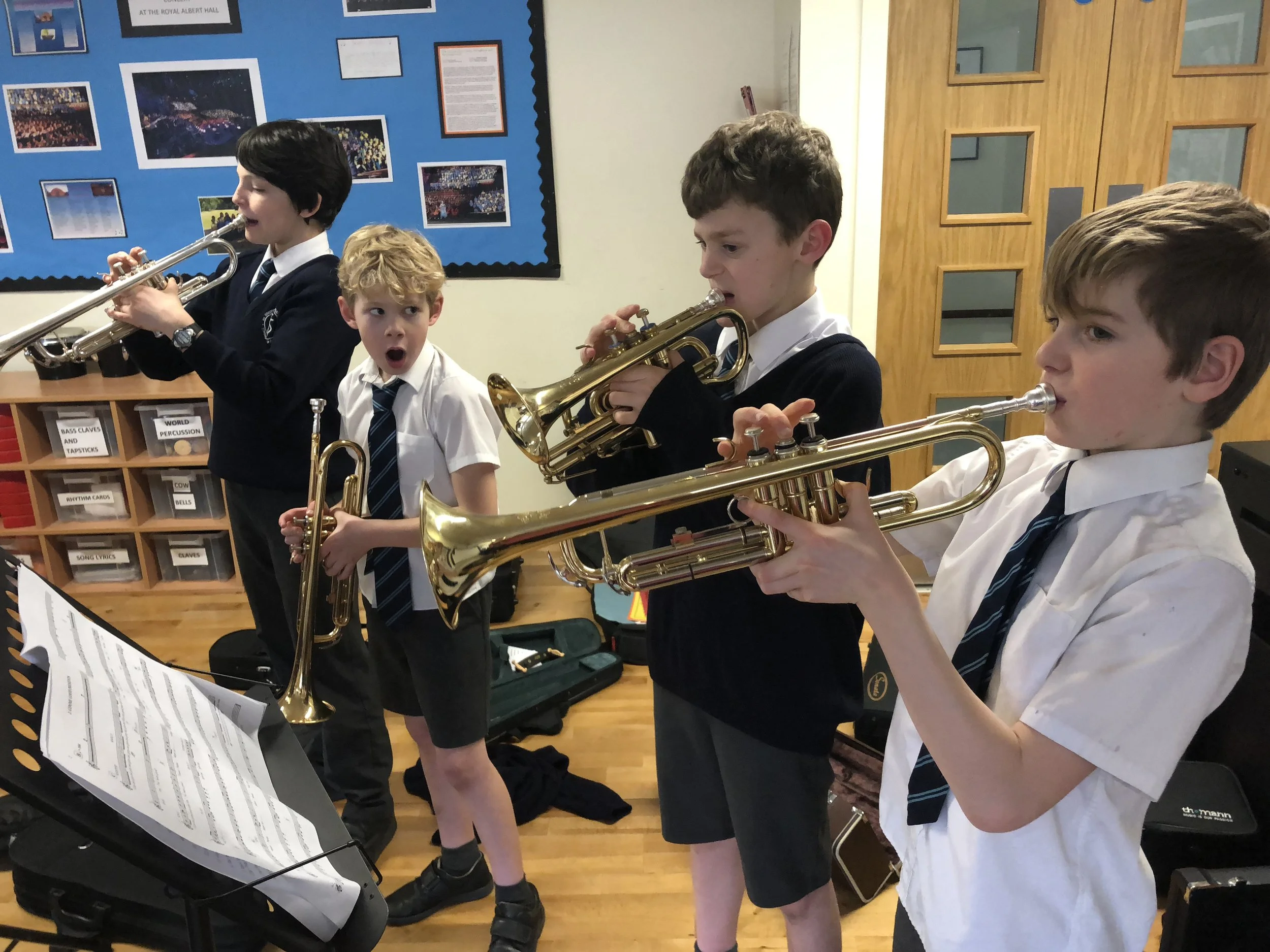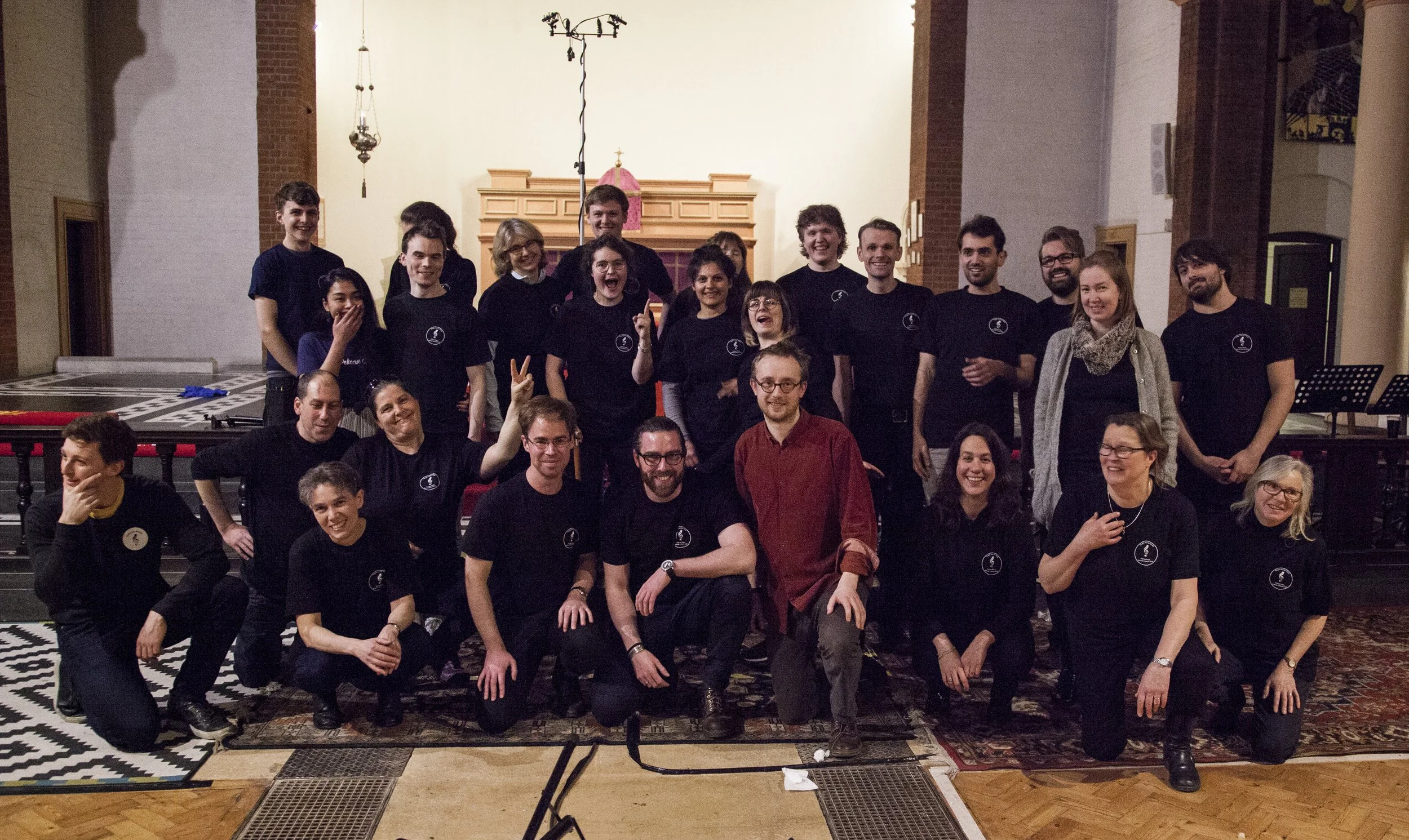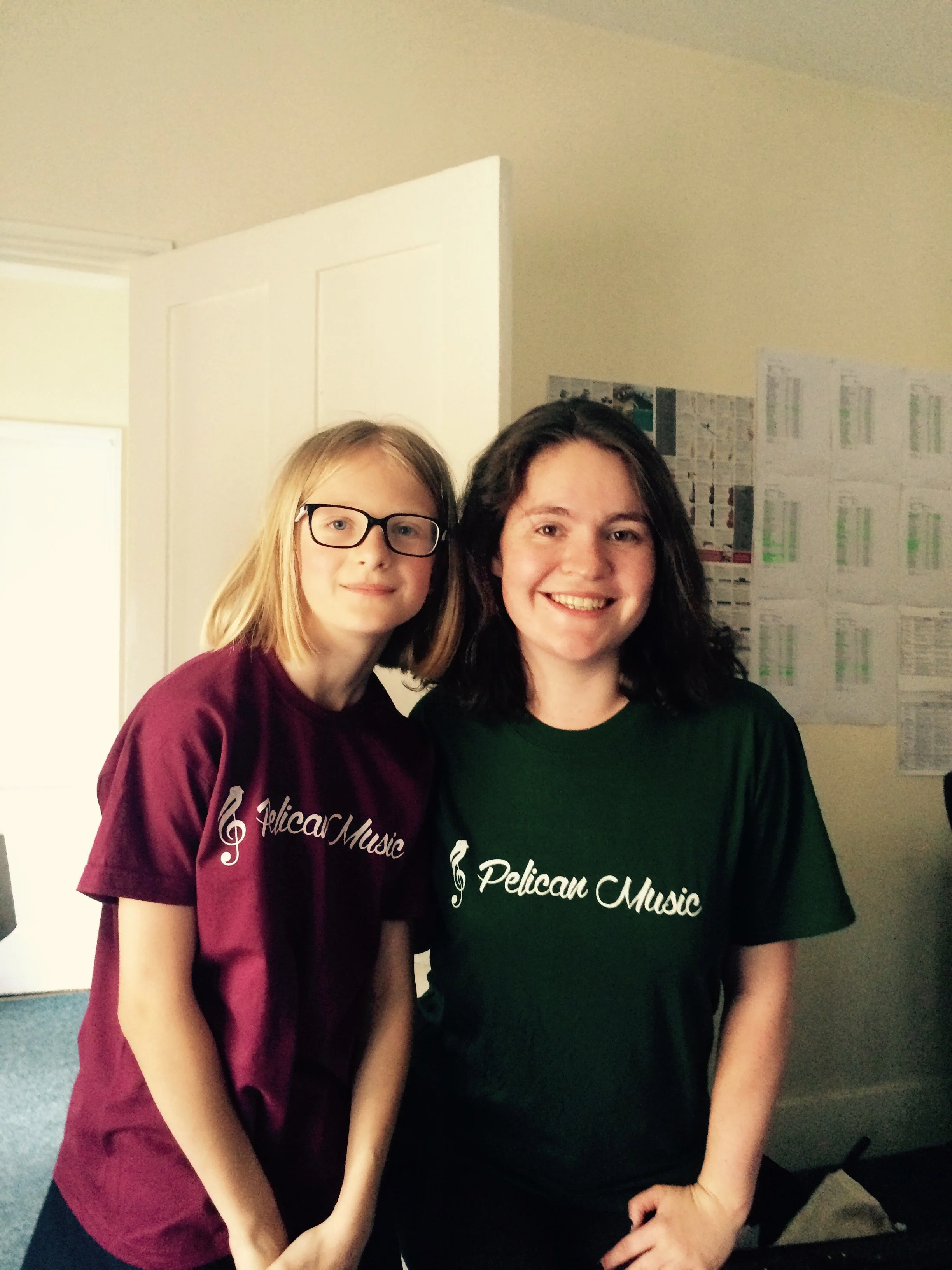10 Years of Pelican Music: A Journey of Passion, People, and Purpose by Agnes Hamilton
10 Years of Pelican Music
Unbelievably, this year marks 10 years since I started Pelican Music – a decade of highs, lows, and everything in between. We’ve gone from me teaching Violin in my living room to 30 schools and over 100,000 lessons taught to well over 1,000 children at this point. Countless concerts (one with 500 students!), numerous scholarships, conservatoires through to university orchestras - we’ve supported countless musical journeys.
However, it’s not been an easy road. Brexit meant losing excellent teachers to visa restrictions. A global pandemic did its best to close us down for good. An ongoing cost of living crisis continues to affect families and music teachers alike. Personally, I’ve had to navigate significant health challenges and in recent years, balance building Pelican with becoming a mum of two. To say we did things on “hard mode”, would, I think, be a bit of an understatement.
If you’d told 18-year-old me – just starting out teaching violin and piano in Shepherd’s Bush – that we’d be here today, through all of that, I would have just laughed. I’m not sure what I’d have found less believable, that, or that I’d be comfortable navigating my way around a spreadsheet. And yet, here we are.
I thought it’d be nice to reflect on where my love of music education came from, why it means so much to me, and why I’ve dedicated over a decade of my life to it. Whether your children have been learning with us for many years, or joined us only recently, I hope you enjoy learning more about our journey.
Filling big shoes
I come from a long line of strong female role models, especially in music education. My granny single-handedly brought music to rural Cornwall through wind and brass ensembles and honoured her cousin’s legacy by running The Radford Trust, which supports aspiring young musicians in Cornwall. My mother was an exceptional violin teacher in West Sussex, where we grew up on a boat (The Pelican) in Shoreham-by-Sea. Despite not having studied violin professionally, she showed me that the greatest skill in teaching is understanding children – not being a virtuoso.
Through her Montessori training and instinctive understanding of how children learn, I saw her create opportunities for ensemble playing, performances, and music courses from the moment a child opened their violin case. Despite attending the top junior music conservatoire in the country, I played with musicians of all levels growing up, which, in hindsight, laid the foundation for my passion for joyful and community driven music-making.
Watching her arrange music for whoever was in front of her meant nothing was off-limits. Vivaldi with open strings? Why not? Peter and the Wolf for beginners to Grade 8? Absolutely. Music was always for everyone.
Igniting the spark
My own musical education was tough. Like ballerinas attend the Royal Ballet School, young musicians often attend music boarding schools – and I spent my teenage years at one of the top ones in the country. It was there I learned that teaching is a skill – and a rare one. Over four years, I had two of the most eminent teachers at the time, who were, sadly, also the most damaging. Whilst that definitely sparked the beginnings of my passion for good teaching, those years were not all negative. I also saw examples of truly inspiring teaching in the form of a German teacher who managed to get me from Zero to GCSE in 3 years and a music theory teacher who truly altered how I approached music.
In part due to these experiences, I always knew I wanted to teach as well as perform. I went to the Royal College of Music at 18 and moved permanently to London. I quickly found work with a local teaching agency in West London, which sent young teachers into homes and schools. Almost immediately, I was placed in a school to teach the whole of Year 5 the violin – at the same time. No training. Just me, 18 years old, introducing music to 8- and 9-year-olds. It was daunting.
But I used everything I had watched my mother do. By the end of the year, they performed at the Lyric Theatre in Hammersmith – a surreal and joyful moment. That being said, ultimately I felt unsupported at the agency and decided to leave. When I handed in my notice, the headteacher of that school asked if I would stay and work directly with them – and I did. That school was St Stephen’s CofE Primary, which would become Pelican’s first school.
Over the years, I’ve learned that the success of extra-curricular music in schools rests hugely on the headteacher and senior leadership. You need someone who understands that a thriving creative community benefits not just the pupils, but the whole school. Michael Schumm, Head of St Stephen’s, is one of those people. A “yes man” at his core, he took a chance on a young 19-year-old to lead music in his school, where there had been very little previously.
He let me grow. We started with violin and piano lessons in an IT suite. Then came more teachers, more instruments, orchestras, quartets, a switch to 1:1 lessons – and today, one in three pupils at St Stephen’s learns an instrument. He taught me that making your workplace a positive community benefits everyone – committed, fulfilled teachers stay longer and give more, and ultimately, the children thrive.
Taking the leap
At St Stephen’s, I built a teaching studio from the families I worked with. I formed a string group based on my mum’s approach, hosted in students’ front rooms. Friendships were formed that still exist today, even as those students head off to university.
For me, success isn’t about creating professional musicians – although some have gone that route. It’s about giving children something that enhances their lives and brings joy. If my students form life-long friendships and a love of music, I’ve done my job.
After five years at St Stephen’s, the school office was increasingly burdened by the admin of a growing music department – invoices, freelance payments, parent communications. I felt I was ready for a new challenge, and proposed that I run the music department independently. Michael agreed, and Pelican Music was born.
In the early years, it was essentially an extension of what I had already been doing – just with more spreadsheets. My boyfriend (now husband), a software engineer, helped me modernise. From day one, my non-negotiable was high-quality instrumental education for everyone. Business decisions were always second to educational ones – a strength, and maybe also an achilles heel.
Soon after, we were asked to bring our programme to three more schools. I was excited but nervous. Then, at 24, my life changed dramatically. Within a month, I went from being fit and active to relying on a wheelchair and full-time care. I won’t go into detail here – that’s another story – but Pelican gave me purpose. Having to keep going, keep running my company, keep turning up for my students, however that looked, meant I couldn’t spend too long grieving the life that had changed so much. And children? They don’t see disability in the same way. My students never looked at me with pity, they just carried on and kept learning, which was the greatest medicine of all.
That time also showed me the importance of team. Pelican survived because of an incredible group of teachers and parents who carried us through. I’ll always be grateful.
Taking a stand
When I started teaching in London, I was shocked by how many unqualified people were teaching instruments. One person I met claimed to teach four instruments – two of which they didn’t actually play. Unlike schoolteachers, instrumental tutors aren’t regulated. Anyone can say they teach the violin, so how were schools meant to know what was good and not?
I wanted Pelican to stand for quality. We only hire teachers after observing them teach – something shockingly rare in the industry. We also fought back against the snobbery that says “those who can’t, teach.” Teaching makes you a better musician. Always.
Here’s how we’ve supported our teachers:
Transparent pay and rates.
Direct email contact with parents – fostering trust and communication.
Guaranteed payment, regardless of whether we’d received the money.
Social opportunities and a sense of community.
Strong admin and pastoral support.
It's one of my greatest pleasures that some of our teachers have been with us since before Pelican even began. They aren’t just part of the Pelican family, they are part of my family.
Focussing on the future
I recently got asked to be a mentor for the Business Programme at the British Library,and it really made me reflect on what it means to be a young woman in business. For all my hard work and passion, I’ve also been lucky – in my supportive partner, the schools that took a chance, the teachers who believed in me, the parents who understood the changes and the students who made it all worthwhile.
Recently, I had two full-circle moments. Two students who started with me as children have come back to Pelican – one as a teacher, the other having worked with our office team before university. Their stories are deeply meaningful to me, and they encapsulate what Pelican is all about.
Pelican Music at 10 isn’t just my success. It’s the success of a community – and for that, I am endlessly grateful.

